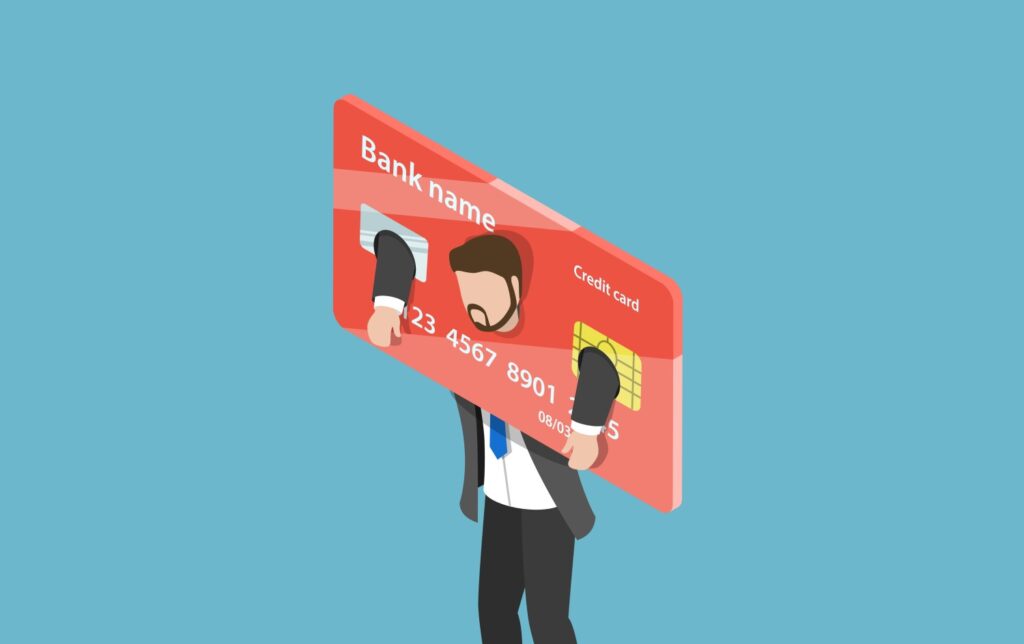
Across the pond, there’s been talk that the new US president Joe Biden could cancel or forgive up to $10,000 of student debt per borrower, and some Americans are even pushing for far more.
This might sound crazy but is it? Does the cancellation of debt have benefits that outweigh the cost?
Here in the UK, our student loan debt already has a ticking expiration date.
This date varies but if you took out a loan between 2006-2011 then it’s only 25 years before it gets written off.
But the topic of debt cancellation, also known as a debt jubilee, goes far beyond just student debt.
Since Covid decided to rear its ugly head there has been renewed attention for debt cancellations for crippling household debt, as well as the national debts of countries both rich and poor, including the UK.
The UK’s public debt is way over £2trillion now and growing fast and this will be a burden that our generation and our kids and grandkids will have to carry!
In this article we’re going to look at the possibility of debt cancellations for both UK household debt and the UK national debt, why it should and why it shouldn’t be cancelled, and how it might be done.
If you head over to the Money Unshackled Offers page, you’ll find tons of great offers, such as free stocks worth up to £200 when you sign up to Freetrade or 6 months with zero management fees with Nutmeg. It’s definitely worth checking that page out.
Does Britain Have A Debt Problem?
Before we even look at the need or feasibility of a debt cancellation, we should first look at whether the UK has a debt problem in the first place. This debt problem can be split into 2 broad categories: national debt, and household debt.
National Debt
It’s widely believed that high national debt is bad for growth and most countries seem to be doing their utmost to keep a lid on the potential ticking time bomb, at least they were before Covid.
However, there are many interesting theories out there that say the UK national debt doesn’t really matter.
Jubileedebt.org point out that one-third is owed to the UK government itself – the Bank of England – and another 45% is owed to other people and companies in the UK, such as pension funds and savers.
Only 20% is owed to those outside of the UK, and the UK government’s foreign debt payments are just 3% of its revenue, one of the lowest levels of any ‘rich’ country.
So, based on this, it does seem that the debt problem has been slightly misreported on, but still we don’t understand the argument that debt is less important when it’s owed to people and companies in the UK.
If you lend money to the government in the form of a gilt, then you want your money back just as much as a foreign lender would.
Another argument that says the national debt doesn’t matter is the ability of governments to print more money.
The fact that a country like the UK can seemingly print money at will means it can always just pay off debts by turning on the printing presses.
We’ve seen this with the amount of Quantitative Easing that has occurred since 2009 and more recently in 2020. They’ve magicked £895bn into existence and this is likely to increase further.
Before Covid we had been told that Britain’s finances were at breaking point but clearly the magic money tree has been found – even if it was then stripped down to the roots in 2020.
National debt cannot be allowed to spiral out of control because debt enslaves countries as much as it enslaves individuals.
It places limitations on how a country can react to opportunities and threats. Would the UK be less willing to spend on infrastructure or education knowing it will struggle to pay for it? We think it would and therefore damages growth.
And then there’s the argument that it doesn’t matter how big the national debt is, as long as the interest payments can be met.
In this age of rock bottom interest rates, the government feels it can spend at will, because debt costs almost nothing.
Of course, governments that take this view are being short sighted – but this is a recurring problem in democracies. The Opposition, whoever it is at the time, can always clean up the mess when they are next in office.
Household Debt
The general public definitely do not have magic money trees, so arguably this is far more worrying.
According to the latest data from finder.com, total household debt in the UK was £1.7 trillion or almost £32,000 per adult. This debt could include a mortgage, credit cards or short-term loans.
These figures don’t tell the whole story because not all debt is created equal. There is good debt, which is when the debt is matched to a productive asset such as property or stocks.
Then there is wicked consumer debt, which is most commonly from credit cards, overdrafts, store cards and payday loans. According to finder.com this now stands at £206bn, of which £61bn is credit card debt alone. Per household this is round £2,200 of credit card debt.
Why Debt Should Be Cancelled?
National Debt
Quite simply, if the country wasn’t in debt, there would be more money available to pay for public services like the NHS, education, transport, police and everything in between.
A debt free nation would help to raise the living standards of everyone, as the money that was spent on interest could be directed instead towards the stuff that matters.
Household Debt
Debt acts as a vice, preventing the indebted from acting in a way that benefits them and society to the fullest. Large swathes of the British public struggle month in, month out to service their debt obligations and feed themselves and their family.
For each and every person struggling to look after themselves there is an opportunity wasted. They are little use to society if they can’t properly contribute.
A country benefits most when the most number of brains have access to the most number of opportunities. Opportunities – no matter how small – arise everyday, but have to be declined or ignored as the indebted cannot take risks.
A free man or woman who isn’t living pay-check to pay-check may take the opportunity to retrain and could end up inventing or doing something that changes the world – the next Jeff Bezos, Tim Berners-Lee, Elon Musk or Martin Luther King.
This may sound unlikely but when millions of people are liberated from debt, all it takes is one.
A cancellation of debt would close the opportunity gap. As it stands now, the poorest of people are likely to stay poor, and in many cases it can be a seemingly small sum of debt that entraps them.
To us, credit card debt of £2,200 might seem inconsequential, but to someone in poverty it can be the chains that enslave them.
Another argument for the forgiveness of debt is that some debt is, in a way, forced upon you without being properly educated about it, such as student loans.
There does need to be a level of personal accountability but student debt is practically given to kids without proper direction. Nowadays we consider ourselves well versed on money but at 18 we didn’t have a clue. Is that fair?
Another example of when debt is practically forced upon you is through mortgage debt.
We all need to have a roof over our heads and yet UK governments have allowed housing costs to spiral out of control.
Successive governments of both parties have not done enough to increase the housing supply, which would have kept the cost of a house down to more affordable levels.
As a result, people are enslaved to mortgage debt though most of their adult lives.
When everyone is indebted, they are unable to spend, forcing trade and the economy to grind to a halt.
How Can Debt Be Cancelled?
There are many ways that debt could be cancelled, both directly and indirectly.
The direct way would be that you no longer have to pay the debt and it is simply written off. It’s probably safe to assume that the lender would not be too impressed with this as they would lose out. We think this is a non-starter.
The immediate damage it would cause would likely destroy our economic system, which we’ll get to soon.
A more plausible solution would be to cancel the debt but at the same time have the government reimburse the lender.
In effect this would be a hidden tax, as personal debt would be lowered but public debt increased. Public debt is owned by everyone and the middle classes would bear the biggest burden through likely higher taxes.
On the other hand, if the magic money tree of Quantitative Easing can be sustained a little more this could be one way to do it – at least to pay off some of the debt. Let us know in the comments what you think about this.
An indirect way would be for the government to gift money to everyone to spend on what that want as they have done over in the US with their stimulus cheques.
Large numbers of people would choose to spend this on paying down household debt but like the previous idea, this has the problem of increasing public debt, which as discussed some people consider not to be a problem at all. We certainly consider public debt to be the lesser of the two evils.
Why Debt Shouldn’t Be Cancelled?
Someone will lose out. The borrower owes money to the lender. That lender expects to be paid. If the lender loses out, then they will never lend again, or expect excruciating interest rates when issuing loans, to factor in the additional risk of debt cancellation.
This would cause a collapse in our economic system, which is why it’s a non-starter. Without the option to borrow it would cause a momentous slowdown in the economy.
It’s the lenders who finance business and entrepreneurs. These businesses and entrepreneurs create the jobs and opportunities but if they lose out, the jobs go, the wealth goes and the opportunities go.
Even if the government reimburses the lender, the British taxpayer has to pick up the bill.
Why should someone who hasn’t incurred the debt and has not had the benefit of it be forced to pay the cost? In the case of student loans, why should someone who didn’t go to university pay for those who did?
Perhaps the most important reason not to cancel debt is because it would set a dangerous precedent.
Currently, we all know that if we dig ourselves into a hole we have to dig ourselves out. We all must take accountability for our actions. This might be a painful lesson but it’s worth it.
If there was one debt bailout, then people would expect it again. It would encourage wasteful and frivolous spending, and the forgiveness of debt would teach people all the wrong lessons.
Has There Ever Been A Debt Jubilee?
When doing the research for this article, most of the articles we came across were rambling on about debt jubilees that took place in biblical times, as if it had some sort of relevance.
What we want to know is have there been debt jubilees in the times since we lived in straw huts and traded 2 cows for 1 camel.
Well, there have been modern-day debt jubilees. According to moneyweek.com, one took place in 1948, when the Allied Powers replaced the Reichsmark with the Deutsche mark.
They wiped out 90% of government and private debt and paved the way for West Germany’s economic miracle.
Should debt be written off and if so, how? Let us know in the comments below.
Check out the MoneyUnshackled YouTube channel, with new videos released every Monday, Thursday and Saturday:





